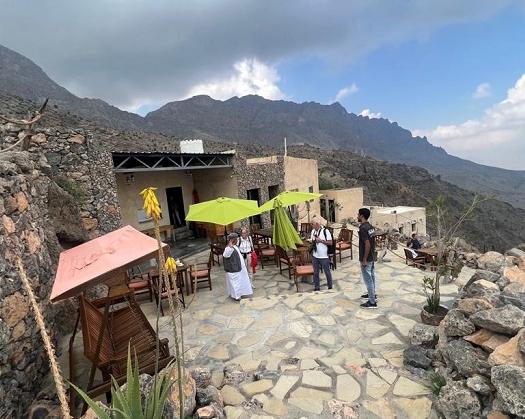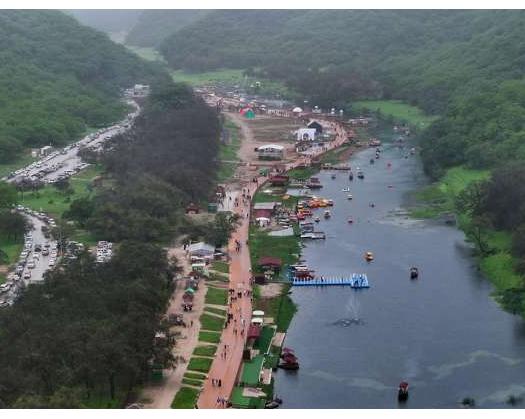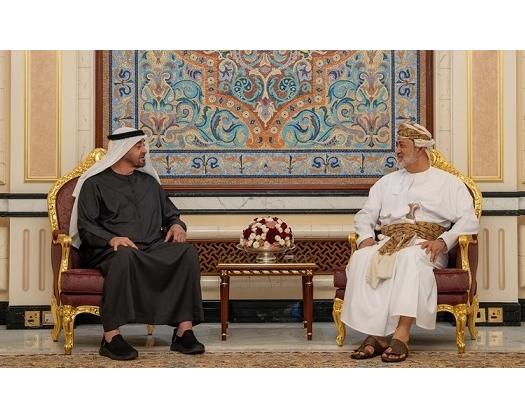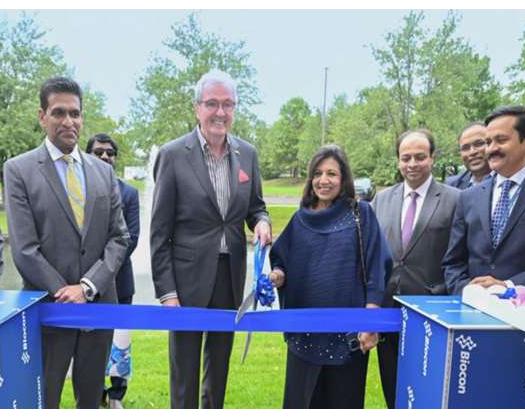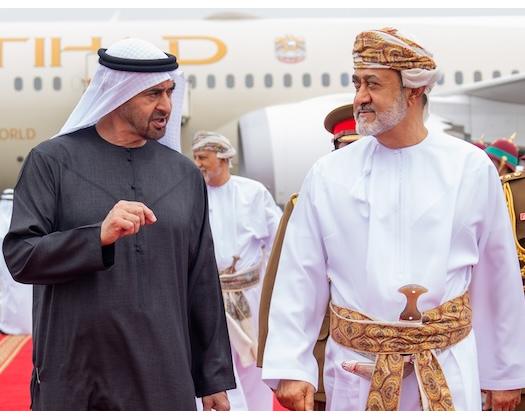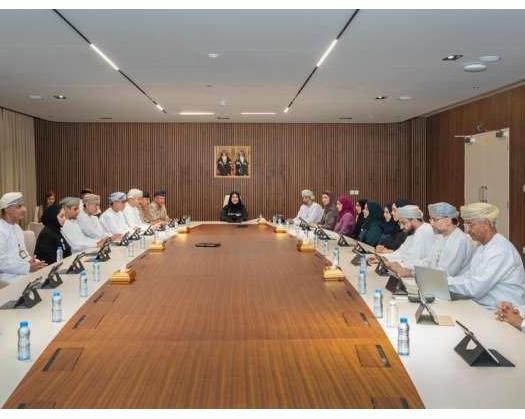There is a growing interest in investing in green inns, which are viewed as an ideal choice for accommodation and leisure.
Green inns offer a revenue stream for individuals looking to invest in this area.
These establishments embody a holistic approach to sustainable tourism development and are fundamental to rural eco-tourism.
Projects involving green inns in natural and rural settings play a vital role in fostering local community development and supporting associated economic activities.
According to the Ministry of Heritage and Tourism (MHT), the number of licensed green inns in the Sultanate of Oman reached 153 by the end of 2024. These inns are spread across various governorates, with South Al Batinah leading in quantity, followed by Al Dhahirah.
The Ministry has indicated that its future plans will align with the objectives for the heritage and tourism sector as outlined in Oman Vision 2040. It is undertaking a thorough assessment of strategies and programs related to the vision’s goals, comparing them with achieved statistical indicators to ensure effective implementation of tourism initiatives. One of the Ministry’s primary focuses for green inns is to enhance the quality of approval processes for establishing these facilities. This will involve collaboration with relevant authorities and a strong emphasis on the quality, diversity, and sustainability of project components.
Ahmed bin Khamis Al Saadi, Director of the Investor Services Department at the Ministry of Heritage and Tourism, remarked that “Green inns are gaining popularity among both tourists and investors. They provide an excellent option for accommodation and relaxation for individuals and families, thanks to the unique tourism experiences they offer. Furthermore, they act as a source of income for citizens interested in investing in this sector.”
Special standards for eco-friendly inns
Al-Saadi indicated that a comprehensive set of specific standards for eco-friendly inns is currently under development in partnership with relevant authorities. These standards aim to align with the growth and dynamics of the tourism sector in the Sultanate of Oman, ensuring compliance with necessary regulations and requirements. This initiative will ensure a superior experience for visitors. He mentioned that in the future, these inns may be categorized based on their facilities, the activities they offer, sustainability initiatives, and adherence to quality benchmarks. This effort is part of the Ministry’s continuous commitment to modernizing and improving the eco-friendly inn sector.
Streamlined licensing processes
Al-Saadi further emphasized that the Ministry has established lower licensing fees for eco-friendly inns compared to other hospitality sectors, with a fee of OMR250 for a five-year license. The Ministry also works with financial institutions to assist project owners as needed. Furthermore, it collaborates with relevant authorities to streamline the licensing processes, encouraging potential investors to participate in this sector.
Holistic approach to tourism development
Al-Saadi pointed out that since the introduction of eco-lodges, heritage inns, and guesthouses in the first quarter of 2015, the Ministry of Heritage and Tourism (MHT) has organized a series of awareness workshops across various governorates in the Sultanate of Oman. These workshops, conducted in partnership with relevant entities, aim to promote these tourism offerings and motivate citizens to invest in them. Additionally, the Ministry has made activity requirements available on its website to facilitate access to regulations and licensing conditions for stakeholders.
Eco-lodges represent a distinctive form of hospitality that embodies a holistic approach to sustainable tourism development. Their unique features position them as fundamental elements of rural eco-tourism, providing an additional draw for visitors.
Supporting Local Communities
Al Saadi highlighted the crucial role of eco-lodge initiatives in rural and natural settings in fostering local community development. These projects create job opportunities for residents and stimulate various supporting economic activities. Local community involvement is vital, as it includes offering services such as preparing traditional Omani dishes, marketing handicrafts and local products, and promoting small and medium enterprises within the tourism sector. Furthermore, these initiatives introduce new attractions and interactive experiences for tourists, enhancing their connection to the local environment while contributing to the local economy.
Unique and Diverse Experience
He pointed out that eco-lodges should offer a unique and varied experience that allows guests to observe agricultural practices, wildlife, and local fauna while participating in hands-on activities. These activities can encompass farming techniques, cooking, traditional games, and the creation of agricultural or artisanal products. Eco-lodges frequently showcase locally sourced goods and produce, enriching the overall visitor experience.
He elaborated that these lodges are integral to rural and agricultural tourism, a sector that receives considerable attention from the government. This strategy aligns with Oman Vision 2040, which prioritizes the growth of the tourism industry as a crucial aspect of the hospitality sector. A significant focus of this development is to encourage farmers to convert their farms into tourism ventures that provide exceptional services and memorable experiences for visitors. Initiatives also include promoting best practices in environmental sustainability and fostering innovation within this field.
Embracing Sustainable Practices
Al Saadi emphasized that sustainability is an essential principle in today’s business landscape. A growing number of organizations are shifting towards more sustainable practices to safeguard the environment while maintaining a balance among economic, social, and environmental factors. This shift encompasses the utilization of renewable and environmentally friendly resources, fostering social responsibility, increasing awareness of sustainability challenges, and enforcing necessary regulations and laws to promote sustainability in eco-lodges.
The Ministry is also focused on enhancing green spaces, launching initiatives that support sustainability, and optimizing financial returns. Initiatives include beekeeping, establishing nurseries, culinary arts, ornamental bird care, recreational activities, eco-friendly agricultural practices, and integrating small-scale animal husbandry within these lodges.
Sector Challenges
Al Saadi recognized that the investment in eco-lodges encounters various obstacles, such as urban expansion diminishing green areas, which deters potential investors. Additional challenges include the depletion of natural resources due to the drying of traditional water channels (aflaj) and increasing soil salinity.
To tackle these issues, the Ministry is educating consumers and investors about the environmental consequences of their choices. This strategy aims to boost interest in projects that adhere to sustainability principles. Moreover, the Ministry has noted a trend of repetitive designs in eco-lodges and a deficiency of innovative models that prioritize sustainability. To address this, it is collaborating to unify governmental efforts in establishing standards and regulations that promote investment in eco-lodges.

